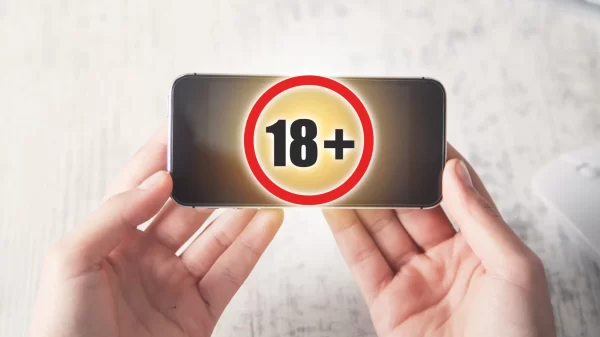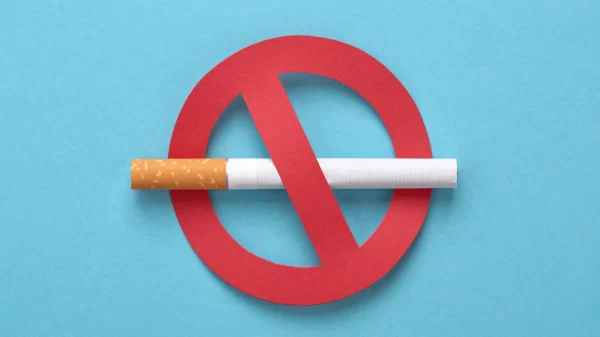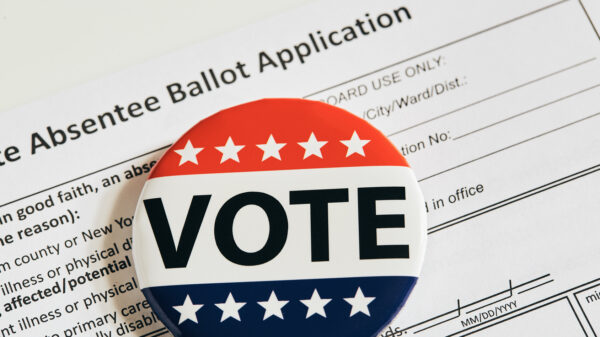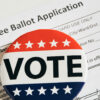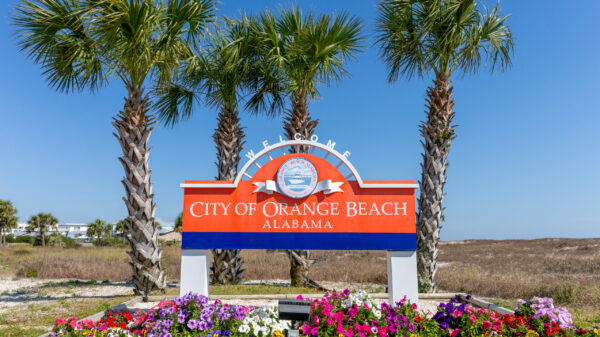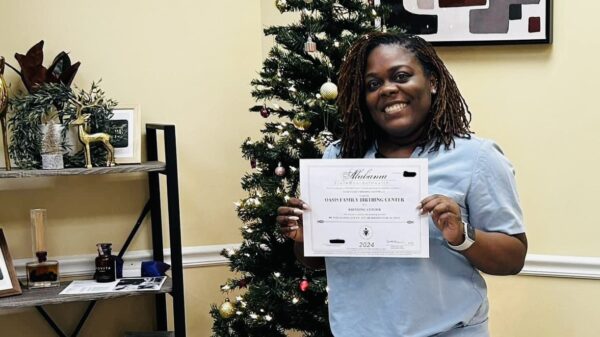Secretary of State John Merrill is facing a lawsuit over his blocking of individuals on Twitter.
The American Civil Liberties Union sued Merrill Tuesday, Sept. 19, 2018, on behalf of three Alabama citizens who say they were blocked on Merrill’s Twitter. They say an elected official shouldn’t be allowed to block constituents on Twitter because it’s a violation of their First Amendment rights under the Constitution.
“It is upsetting to me that the Secretary of State, who primarily uses his Twitter account to disseminate information on issues related to his office, has also weaponized that account by blocking those with whom he disagrees politically,” said Kimberly Fasking, a plaintiff in the case. “It is not the Secretary of State’s job to communicate only with those who agree with him, but with all of the people of the State of Alabama. I am disappointed that I no longer have ready access to information from the Secretary of State’s office in a way that allows me to engage meaningfully on topics that I find incredibly important.”
Fasking, along with the other plaintiffs in the case, are all residents and registered voters in Alabama, according to the initial court filing and the ACLU.
Fasking is a law student at the University of Alabama and says she was blocked after asking about crossover voting, while Heather Melvin Boothe, a second plaintiff, was blocked for stating “Good point! Ballot has major typo.”
The third plaintiff, Herbert Hicks, a farmer and educator, was blocked after asking Merrill about a speaking engagement.
Merill quickly responded to the lawsuit Tuesday in a statement.
“The lawsuit filed today by the ACLU of Alabama is an attempted political hack job,” Merrill said. “Members of this liberal group are attempting to create an issue concerning lack of access to public officials that simply does not exist. As every member of the media and general public who interacts with this office knows, the most important thing for an elected official to do is to remain accessible to the people of this state. That is why I always make my cell number — 334.328.2787 — available to all Alabamians.”
Merrill does regularly release his phone number and responds inquiries.
The ACLU says Merrill’s Twitter account, @JohnHMerrill, is used “regularly to discuss Alabama election law, inform about his duties as Alabama Secretary of State, remind the public about upcoming elections, and generally engage with the citizens of Alabama.”
They argue that because of the way he uses this account, even if it’s personal, it has become an important source of news and information regarding Alabama elections and election law.
Merrill said in his statement that his account’s personal nature excludes him from a recent federal court ruling that held President Donald Trump’s blocking of followers on Twitter violated the First Amendment.
“Further, the account in question — @JohnHMerrill — is exclusively my account, while the account @alasecofstate is the state’s public account, and this account has never blocked anyone from viewing any of the posts on its page,” Merrill said. “The @JohnHMerrill account has remained a personal account since its creation, in October 2009.”
The lawsuit resulting in a federal ruling against Trump was filed by Columbia University’s Knight First Amendment Institute and seven of his former followers whom Trump blocked on Twitter.
After the federal court ruling regarding Trump’s account, Merrill told the Montgomery Advertiser that he would continue to block followers who were only interested in promoting their public agendas.
He reiterated that resolve in his statement Tuesday.
“When people use a platform for public debate as a way to promote their agenda, regardless of the presentation of any factual information, I believe it is my responsibility to designate attempts to misinform the public as false,” Merrill said. “And, when users continue to publish those instances, or when they make hurtful statements about me or my family, I try to reduce the exposure to avoid misinforming members of the public.”
The lawsuit seeks to bar Merrill from blocking plaintiffs and others based upon whether he agrees or disagrees with their viewpoints, the ACLU’s complaint states. The case was filed in the Middle District of Alabama U.S. District Court on Tuesday.
Merrill said the lawsuit and its assertions don’t change the fact that he is accessible to the public.
“I am recognized as one of the most accessible and personally available elected officials in the history of the state of Alabama, which is why I visit all 67 counties each year,” Merrill said. “It is my desire to continue to be recognized in that way as long as I have the privilege to continue to serve in public office.”
ACLU of Alabama attorney Brock Boone said Merrill as a government official does not get to pick and choose who receives information on Twitter just like he can’t kick out his constituents for their beliefs at a town hall.
“This is a violation of the First Amendment,” Boone said. “It is worrisome that the individual in charge of free and fair elections chooses to discriminate against individuals on social media. As the Secretary of State, Merrill should be using his platform to inform the public, not censure them.”












